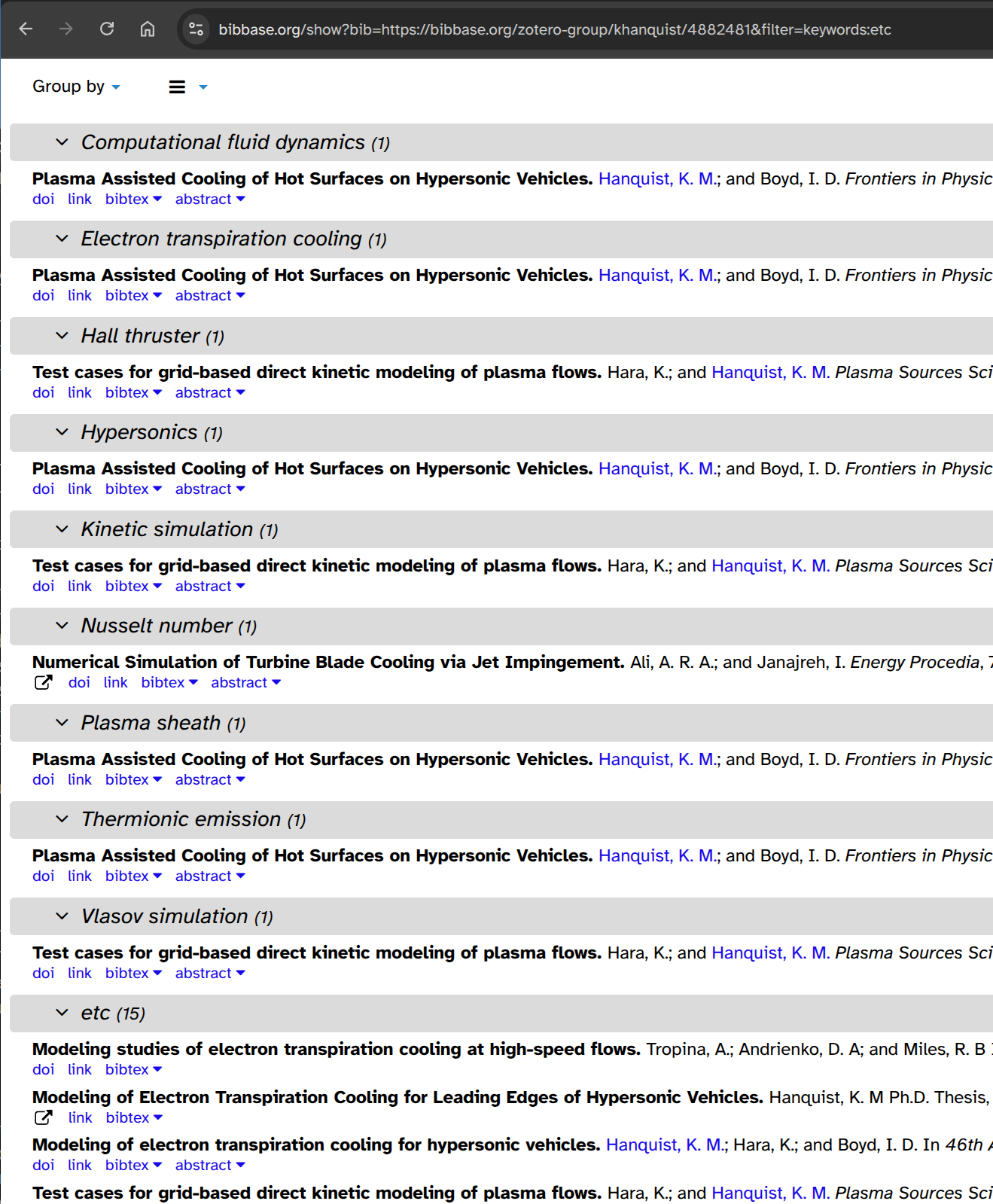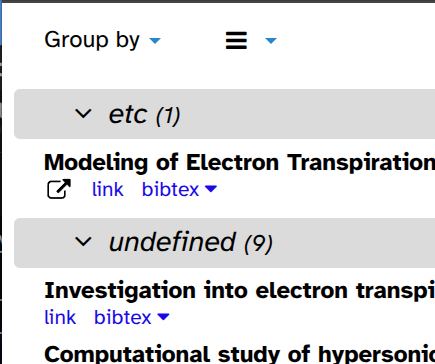Your comments
I think that's because this entry has type set explicitly to "Ph.{D}.". This here seems to work:
https://bibbase.org/show?bib=https://bibbase.org/zotero-group/khanquist/4882481&filter=type:Ph.*D,keyword:group
Actually no, nevermind, it does work. It's just that there are many papers with "etc" plus other keywords.

Hm, yes, strange, it doesn't filter when using etc, but it does work for others, e.g.,
It looks like there are no publications that use the "group" keywords you are trying to filter by. This is the view when grouped by keyword:

Can you send me a link to your publications page?
This seems to be due to a change at your department. Your page uses: https://bibbase.org/show?bib=https://www.ualberta.ca/~szepesva/papers/p2.bib&jsonp=1&group0=year&theme=bullets&css=https://www.ualberta.ca/~szepesva/jemdoc.css
but the link to that bib file should now be https://sites.ualberta.ca/~szepesva/papers/p2.bib
You can see it working when manually testing with that link (with jsonp=1 removed so it renders fine when not embedded):
Thanks for letting me know again. We've updated our deployment orchestration to automatically recover from such situations now. So hopefully this won't happen again.
The issue seems to be that we are currently being bombarded with requests from bots: applebot, googlebot, claude, semrush, and openai bot seem to all be crawling us at the same time. These requests come in fits and spurts. I'll keep and eye on it and if it continues to slow down the service I'll go ahead and ban some of these bots.
Hi Aaron, thanks for letting me know. I hadn't noticed -- there must be something wrong with our alerts. It's back up now. This is certainly not expected.
Customer support service by UserEcho


<script src="https://bibbase.org/show?bib=https://bibbase.org/zotero-group/khanquist/4882481&jsonp=1&filter=type:thesis,keyword=group"></script>
You have a typo here, it needs to be keyword:group (not =).